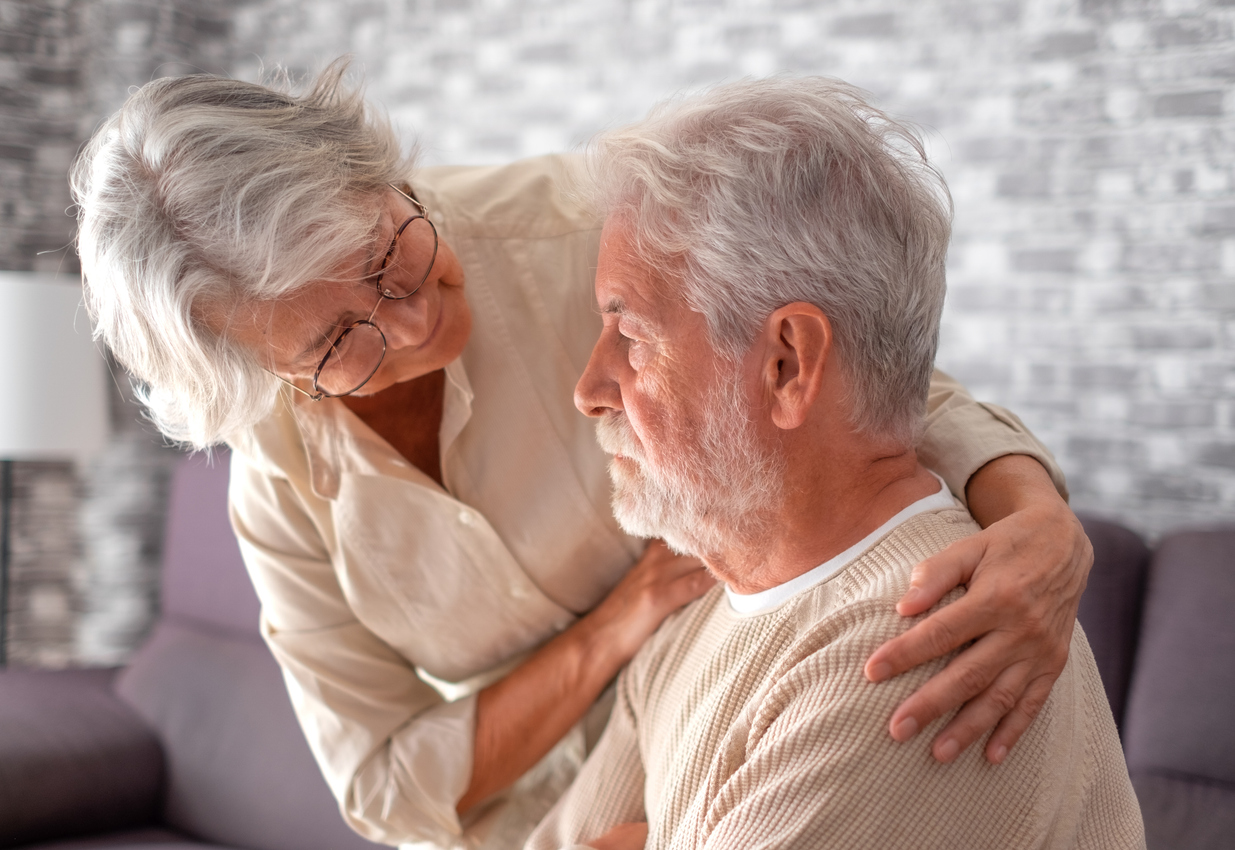10 Ways to Help Seniors Deal with Isolation and Depression
 As older adults progress through the years, they often experience significant life changes that make them more susceptible to depression. For example, empty nesting, job loss or retirement, or the death of a spouse can all contribute to the loss of a sense of purpose and a feeling of emptiness.
As older adults progress through the years, they often experience significant life changes that make them more susceptible to depression. For example, empty nesting, job loss or retirement, or the death of a spouse can all contribute to the loss of a sense of purpose and a feeling of emptiness.
While you may be unable to prevent your loved one(s) from experiencing difficult life situations, you don’t have to stand by helplessly as you watch them struggle. Below are some ways caregivers can help seniors to better cope with isolation and depression:
1. Treat sleeping problems. Sleeping problems can aggravate depressive episodes. Unfortunately, many older adults who live alone are prone to both. The best way to help is to ensure they aren’t taking lengthy daytime naps (a catnap or two is fine), keeping to a regular sleep schedule, and following proper sleep hygiene. If they suffer from sundowning, be prepared when dusk approaches by keeping them on a regular schedule, engaging them in interesting activities, and offering suitable medication.
2. Promote a sense of purpose. Those who have lost their sense of purpose in life tend to struggle more with depression. Please encourage them to take up a hobby or social activity, such as gardening, knitting, card playing, or volunteer work.
3. Encourage social interaction. An active social life improves physical, mental, and emotional health. This is even truer for those struggling with loneliness and depression. Please encourage them to attend community events, participate in group outings, or regularly visit friends and family. You could also check with the local Senior Center, Council on Aging, Center for Active Living, or Office for Elder Affairs to learn about events and organizations promoting social interaction.
4. Keep them physically active. Gentle exercises like stair-climbing, walking, and age-appropriate workouts can do wonders in keeping older people healthy. You may even want to encourage them to sign up for a group exercise class like yoga so they can make like-minded friends. Check with the local Senior Center, Council on Aging, Center for Active Living, or Office for Elder Affairs to see what safe and appropriate exercise classes they offer. Another great option is SilverSneakers, which allows seniors to take live online exercise classes from the comfort of their homes.
5. Make sure they eat healthy. Maintaining a healthy diet goes a long way towards fighting depression. This includes fresh fruits and vegetables, whole grains, milk products, and proteins such as seafood, lean meats, poultry, eggs, nuts, seeds, and legumes—clear foods with added sugars, sodium, saturated and trans fats, and cholesterol. However, allow your loved ones to continue eating their favorite comfort foods so they don’t lose interest in eating altogether.
6. Entrust them with a chore. It can be easy for those who live alone to get trapped in a negative thinking pattern. Giving them a meaningful responsibility can tremendously help them take the focus off themselves. Examples are caring for a dog or tending a garden.
7. Show them they’re loved. A good dose of love can be the best antidote for a severe case of depression. Be sensitive to the emotional needs of older adults, and show them often that you love, need, and value them. Be a good listener and give frequent hugs and other signs of affection. This is especially important for those who are widowed; they’ll need extra support as they work through their grief.
8. Seek professional help. Keep an eye on the severity of depressive symptoms, including behavioral changes or decreases in appetite. If things are getting out of hand, it may be time to contact a mental health professional and start counseling. While a therapist may recommend antidepressants, it’s often better to begin with alternative medicine (like aromatherapy) or occupational therapy first. Understandably, this area can be met with great resistance and may be very challenging to navigate. Implementing the support of a reputable Geriatric Care Manager can be invaluable in some cases.
9. Keep an eye on pills. If your loved one does start taking antidepressants, you may need to step in and help manage medication. Remind him or her to take the dose daily and be on the lookout for skipped doses or any signs of abuse. Be sure s/he also follows the doctor’s orders regarding dosage, diet, and general lifestyle.
10. Consider home care. If your older adult is still living independently and is struggling with depression, it may be time to consider home care, which comes in varying degrees. You could hire someone to check in daily or help with daily chores such as grocery shopping or bathing. You could also ask an older family member to move in with you.
As the saying goes, an ounce of prevention is worth a pound of cure. By keeping your aging person as physically, mentally, and emotionally healthy as possible, you can often head off or reduce a bout of intense depression.
When discussing these or any other topics involving your loved one, it may be challenging to balance showing your concern and sharing your ideas with what they perceive as overstepping or trying to make decisions for them. Discussions about maintaining independence, autonomy, and dignity for your loved one should be at the forefront of an open two-way dialogue as the recipe for successful communication. Contact Cahoon Care.
